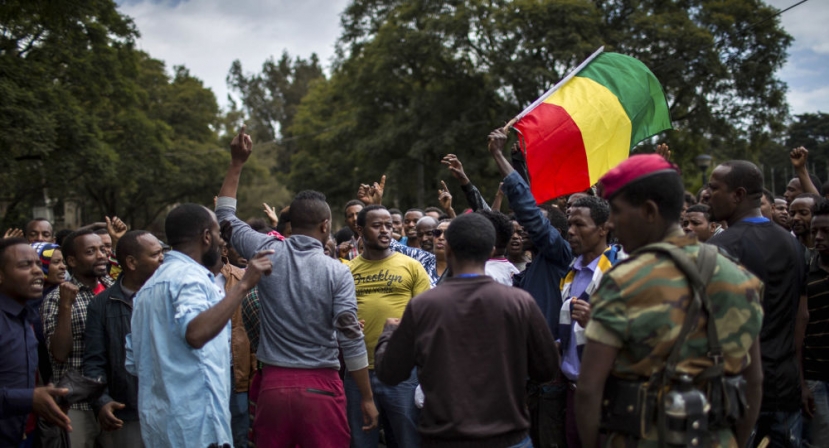"We must stop the forces that are holding back our steps, while we are moving towards our goals," the prime minister said, commenting on the protests.
Ahmed also said that the government will not shy away from responsibility to protect people and their property.
On Thursday, local media reported that at least 78 people had become victims of protests in Ethiopia, and more than 400 people had been detained in connection with the unrest.
Violence in Ethiopia began last week with protests against Ahmed and quickly turned into ethnic clashes. Protests broke out in the capital, Addis Ababa, and in much of Ethiopia’s Oromia region after a Facebook post by activist Jawar Mohammed. He accused security forces of trying to conspire an attack against him at his home, a claim that police officials denied.
Abiy is the country's first leader representing the Oromo group, the largest ethnic group in Ethiopia. In October, he was awarded the Nobel Peace Prize for his role in ending the 20-year war between Ethiopia and Eritrea.
Mohammed, who also represents the Oromo group, stated that the minister acted like a dictator while implementing major institutional reforms and policies since April 2018.

